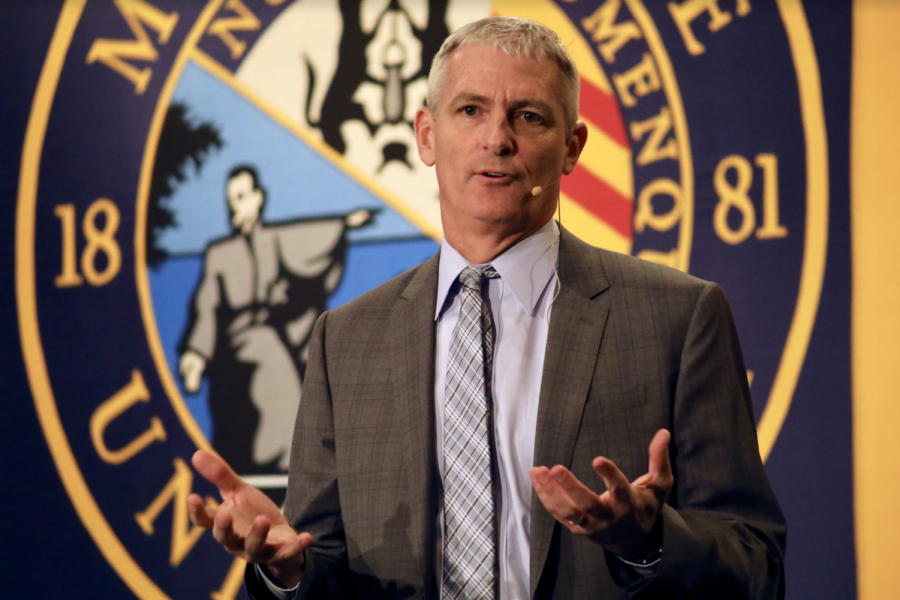 The university recently implemented the “Good Samaritan Policy,” which changes the disciplinary actions normally associated with alcohol or drug violations if action is taken to protect a student in danger.
The university recently implemented the “Good Samaritan Policy,” which changes the disciplinary actions normally associated with alcohol or drug violations if action is taken to protect a student in danger.
The policy states that in the event of a medical emergency involving alcohol, Marquette students are expected to contact proper authorities, “…regardless of the potential for being found responsible for violations of student standards of conduct involving alcohol or drug use.”
“The intent of the GSP is to remove any barriers to students calling for assistance for other students who might be in danger,” said Erin Lazzar, associate dean of students. “Our hope is that all students feel comfortable and compelled to call for assistance for their peers – to be responsible bystanders doing their part to ensure a safer and healthier campus community.”
The policy has been an initiative of Marquette University Student Government in some form or another during the past four years. The policy in its current form was passed by MUSG at the end of last semester.
MUSG President Sam Schultz, a senior in the College of Arts & Sciences, witnessed the entirety of the GSP debate, dating back to his freshman year. Shultz said he gives credit to outgoing Schroeder Hall Senator Thomas Schick, a junior in the College of Business Administration, for finally getting it passed.
“I think the hold-up has always been we got caught up in the ‘how many strikes do people get’ and the whole amnesty thing,” Shultz said. “Then Thomas and his business administration committee kind of came at it from this different angle of ‘no it’s not about the safety,’ but then also leaving some of the control in the hands of the officers who are trained in this.”
Schick, who became chair of the business administration committee at the start of last semester, said the policy was a collaborative effort between all members of the MUSG senates that worked on it in the past.
“First of all, there was an incredible foundation laid when I was a senior in high school,” Schick said. “The ideas were rolling, and there were people passionate enough to debate it.”
Schick also specified that even though the policy was a “de facto” policy already followed by DPS officers, it is important it is now a written policy in the student handbook.
“We felt that it was very important to have it in print and have it concrete, because one, it becomes enforceable, and two, it becomes something we can educate people about,” Schick said.
The Good Samaritan Policy comes roughly one year after controversial changes were made to the Drug and Alcohol Policy, which introduced fines for policy violations.
Lazzar would not comment on how much the university has collected in fines in the past year, citing concerns over the privacy of students. She said though that all fines collected are going toward drug and alcohol prevention and intervention programs.
Lazzar said the goal of last year’s changes to the Drug and Alcohol Policy was to educate students on the negative consequences of dangerous behavior. She said she believes this goal has been met based on data the university has collected on alcohol violations.
“The transparency of standard sanctions was beneficial to students as they made decisions about alcohol use,” Lazzar said in an email. “Additionally, the number of alcohol related disciplinary referrals that will be published in the 2012 Annual Security and Fire Safety report were down by over 200. Given that for half of 2012 the new policy was in place, it is likely that the policy influenced that decrease in some way.”
Still, one of the policy’s criticisms from students has been its alleged ineffectiveness toward reducing underage drinking. Opponents argue that the policy is only pushing drinking off-campus where students are not under the jurisdiction of DPS.
“At the end of the day you can’t stop college students from drinking,” said Matthew Future, a senior in the College of Communication. “Marquette’s policy is simply pushing them downtown, which makes it more dangerous.”
Schultz said he has mixed feelings on the policy, but he supports it as a former resident assistant in Straz Tower.
“The fining system is not something that’s awful,” he said. “Yes, it stinks that you have to pay a fine, and yes they should be telling students where that money is going and how much they’re collecting, and being fully transparent in that entire process.
“However,” he continued, “if it lowers rates of dangerous activity, as an R.A. it was hard to look on it horribly if it was going to stop the residents in the building I was in from having super crazy party nights.”



